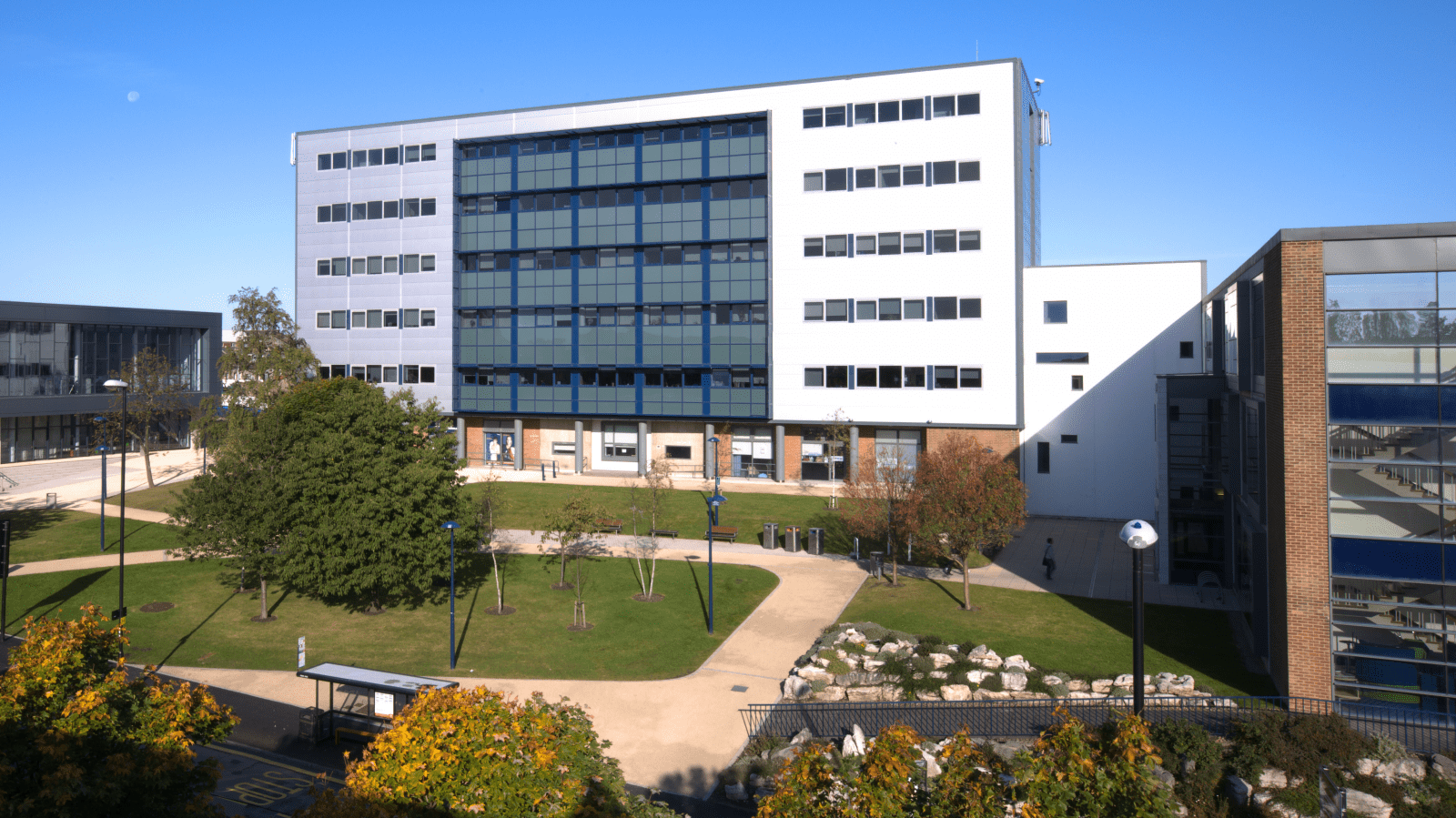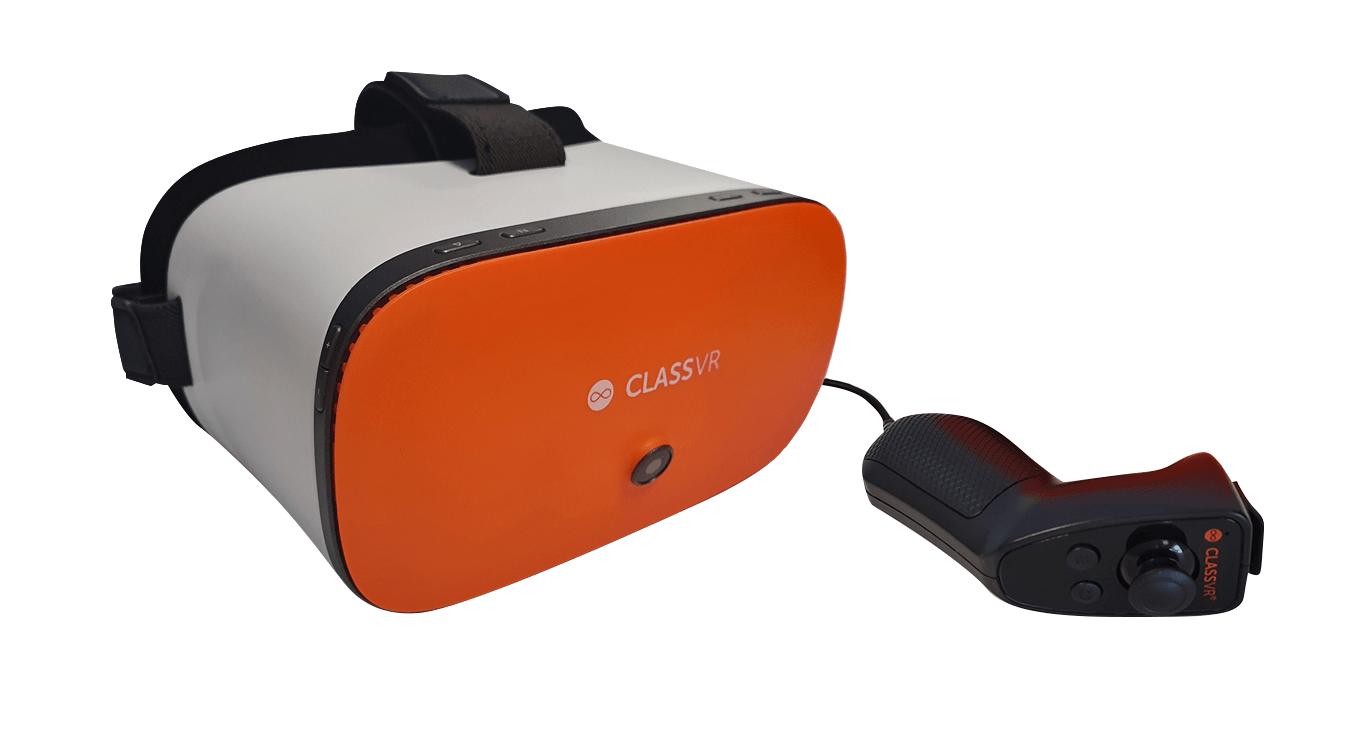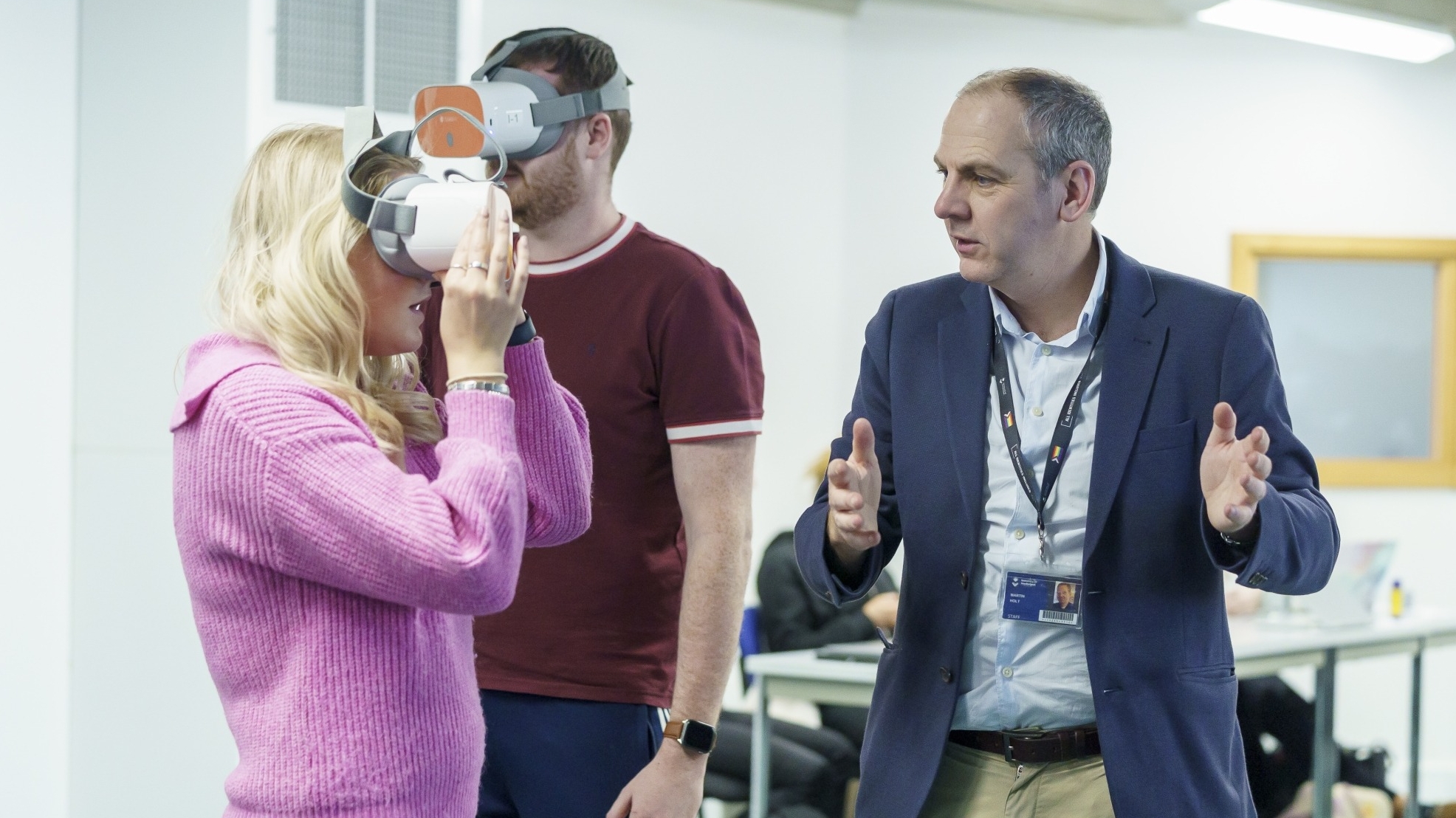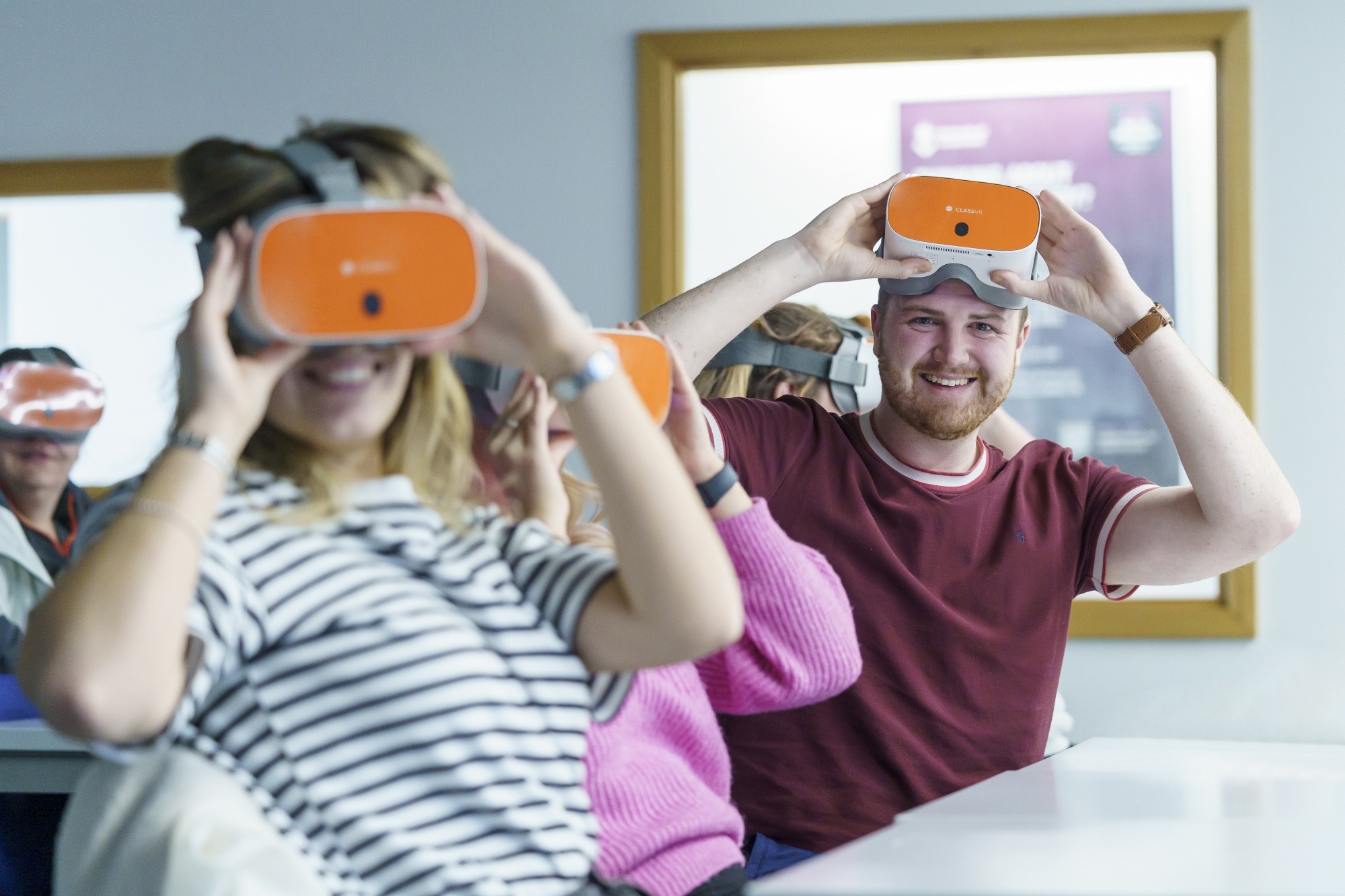VR prepares trainee teachers for the classroom
Project:

The Client
The University of Sunderland is a life-changing institution. It welcomes all with talent into higher education and supports students in reaching their potential through its strategic ambitions to be student-focused, professions-facing and society-shaping. The University has around 27,500 students based at campuses in Sunderland, London and Hong Kong, as well as through global learning partnerships in 15 countries and online learning. The University is proud of its positive contribution to economic and social change. Its graduates leave equipped with the knowledge, skills, confidence and connections to make a positive difference in the wider world.
The Challenge
As the incumbent AV integrator for the University, we were contacted by the Head of the School of Education, Duncan Cross, regarding the demand for future tech within the classroom. Director of Projects and Innovations, Craig Pickard, explored a variety of avenues including immersive environments, sensory solutions and virtual reality. It was soon decided that Virtual Reality was the most flexible option which could it be extensively utilised by the University.
The stats behind VR
Evidence shows virtual reality has the tools to push the boundaries of teaching, and helps students meet their learning goals...
Experience: Learning through experience can boost knowledge retention by up to 75%.
Engage: We only remember 10% of what we read, but can retain 90% of what we experience.
Achieve: VR can improve student attainment increasing exam results by up to 20%.
The Solution
Various Virtual Reality brands were evaluated - including Meta and Oculus - but ClassVR stood out as the most suitable choice for this project. The team at ClassVR provided Craig with a comprehensive run through and demonstrated the full capabilities of the system. Impressed by the solution, Craig quickly arranged for us to purchase our own demo kit which we sent to the University for evaluation. The speed of service allowed us to have a minimal turnaround period of just 6 weeks between the initial enquiry to supplying the kit.

Key Features
- Virtual Reality Headsets: ClassVR is a fully integrated, classroom-ready device with no additional hardware required to get you started.
- Headset Management: ClassVR’s Portal gives teachers the controls to easily send content and direct and monitor student attention, maximising learning time.
- Curriculum Aligned Content: ClassVR provides thousands of virtual and augmented reality educational content to add value to your lessons, no matter what the subject.
- Secure Storage & Charging: All ClassVR headsets come in a rugged storage and charging case to ensure your devices are always ready when you are.

The Use Case
The next generation of teachers studying at the University of Sunderland are using virtual reality to help prepare them for their future careers. The University’s School of Education’s new VR headsets allow its trainee teachers to immerse themselves in a variety of realistic simulations using VR to enhance curriculum opportunities and provide them with an innovative approach to teaching in the classroom. Examples of the simulations include moving through the human body as a piece of food to learn about digestion and skiing when learning about the Arctic in a Geography lesson.
Partners

Client Feedback
Describing the headsets, trainee teacher Rhys Williams, who is studying BA (Hons) Primary Education with QTS, said:
“The possibilities made available are truly endless. My personal view is that these technologies could create very enticing experiences that could be implemented by external providers who specialise in creating and conducting learning experiences, in the same vein as specialist sports coaches conducting PE lessons.”
University of Sunderland lecturer Martin Holt has been instrumental in introducing the VR headsets to the University’s School of Education and, in addition to supporting trainees and academic teaching staff in using the headsets, Martin has visited a number of the University’s partnership schools to introduce the technology to teachers and pupils. Martin said:
“As part of the School of Education’s Lecturer in Residence Scheme, where lecturers go into schools to share best practice and facilitate partnership work between the University and local schools, I have been able to see first-hand how effective the VR headsets are for both primary and secondary pupils. For our trainee teachers, the headsets promote high levels of engagement during lectures as they become fully immersed in the content of the sessions.”
Yarm Primary is among the University’s partnership schools trying out the tech. Year 1 teacher and school mentor Rebecca Gott said:
"Pupils thoroughly enjoyed their science-based VR headset session. This approach with hands-on-learning fully engaged pupils and furthered their understanding of a topic which can traditionally be difficult to visualise.”
Vicki Stokes, Associate Head of School for Primary Initial Teacher Training at the University of Sunderland, said:
“The introduction of this new technology gives our trainee teachers the opportunity to consider another approach to teaching in the classroom. Martin has provided students and the wider team with an excellent example of how effective these can be when used in a primary classroom. My thanks go to Martin for all his work in developing the use of this resource.”
Dean of the Faculty of Education and Society at the University, Professor Lynne McKenna MBE, said:
“Martin has not only taken this new technology into our partnership schools, he also introduced training sessions for academic teaching staff in the Faculty of Education and Society. Indeed, when I put on a headset, I was transported to Dubai for an interactive Geography lesson! I could immediately see that the applications for this technology are endless. With properly designed teaching and learning lessons, pupils’ learning involvement can be developed through interactive activities encouraging their engagement. Once again, our Initial Teacher Training teams are embracing new technologies to enhance learning and teaching in the classroom.”


(Photographs courtesy of University of Sunderland)